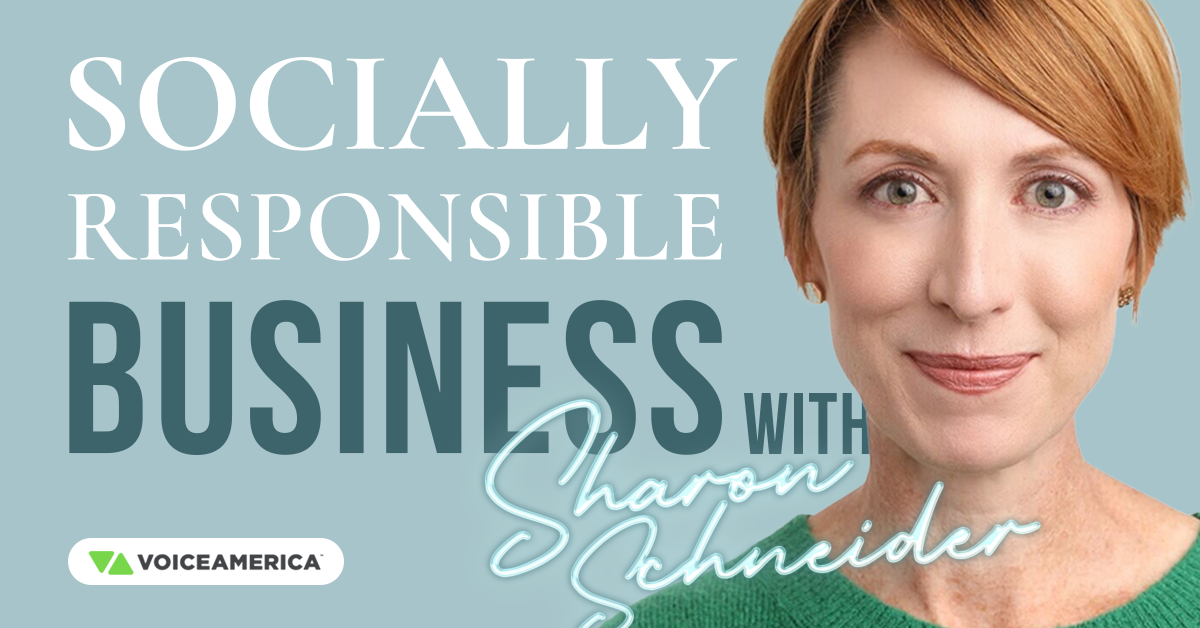Employee Volunteerism and How to Get it Right
On Martin Luther King Day, many companies take the opportunity to organize employee volunteer opportunities with local nonprofits - cleaning up playgrounds, making meals for shelter residents, or maybe staffing a neighborhood “fun run.” Volunteer days can build employee morale and engagement - but does that translate to positive business outcomes? And do the nonprofits that host you benefit as much as you do? In this episode, we’ll discuss the do’s and don’ts of employee volunteerism, and how to activate your business’s other assets to make a difference in your community.
Sharon’s guest on this episode of Socially Responsible Business is Matthew Ganz, founder of EVO Advisors.
Matt is a corporate citizenship strategist helping companies change how they engage with their community. Matt advocates for “a shift away from one-dimensional partnerships and once-a-year volunteerism towards meaningful, ongoing support.” Listen to the livestream (and past episodes) of Socially Responsible Business at VoiceAmerica or your favorite streaming platform.
Employee volunteer days are commonly part of Corporate Social Responsibility (“CSR”) programs, and Matt says they are there for primarily one reason: they are good for the company. Why? Because they can be great team building events. Partnering with nonprofits also builds employee loyalty and engagement because folks enjoy and appreciate the company’s contributions in community.
Our philosophy at Socially Responsible Business is that there is nothing wrong with benefiting the business - but it’s important the business isn’t the ONLY one who benefits. So how can you make sure the nonprofit or community is truly benefitting from your efforts as well?
Start with what the nonprofit actually needs, and make sure they aren’t creating a project just to fulfill your request for a service opportunity.
Offer up your employee’s professional skills - marketing, accounting, technology, strategy - if that’s more valuable to the nonprofit than manual labor. It may also be more inclusive for employees with physical limitations to engage in skills-based volunteering.
Go beyond a one-day event. Long-term partnerships are more valuable to the organization you are trying to support, and this approach will help overcome the potential pitfalls of a single day of “busy work”.
Bring cash! The truth is that it’s a lot of work for a nonprofit to host your employees, and they are probably doing it in the hopes that it will lead to a future cash grant. So at a minimum, give then enough cash to cover their efforts to host you, and even better - give more. If you think they should host you for free because they are getting so much value, think again. It’s like asking an expert to speak to your corporate retreat “for exposure.”
Consider all the other ways you can support that organization using assets you already have: Matt points out that you have a valuable business network and can make introductions. Larger companies might also have a government relations office that could advance issues of interest.
Many companies measure the success of the CSR and employee volunteer efforts by counting up hours worked and dollars donated. To see if those efforts are having the broader impact on your employee satisfaction, consider measuring your turnover compared to industry peers. And to score an A+ as a socially responsible business - look to the organizational health of your nonprofit partner. Work with them to figure out if and how your efforts have help them be a stronger, more stable organization so they can do more of what they do best - help the community.
Resources mentioned in this episode:
Knotty Tie Co. - “We welcome resettled refugees and help them achieve economic self-sufficiency through dignified skills-based employment.”
Women’s Bean Project - “Supporting inspiring women through social enterprise”
Per Scholas - “Unlocking Potential and Changing the Face of Tech”
The Last Mile - “The Last Mile (TLM) unlocks the human and economic potential of justice-impacted people through education and technology training.”
Groundswell Fund - “a channel into which individual donors and foundations can pour resources to reach vital work at the grassroots.”
Impact Genome - “Independently report and verify the impact of social programs, social enterprises, corporations or governments.”
For more thoughts on social responsibility from Matt Ganz, find him at EVO Advisors and on LinkedIn and Medium.
And you can connect with Sharon and read more of her work on being socially responsible at work by subscribing to her LinkedIn newsletter.


